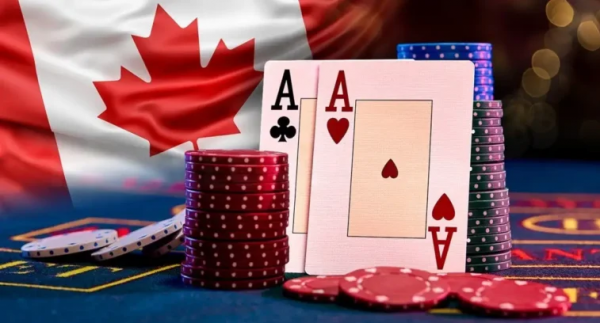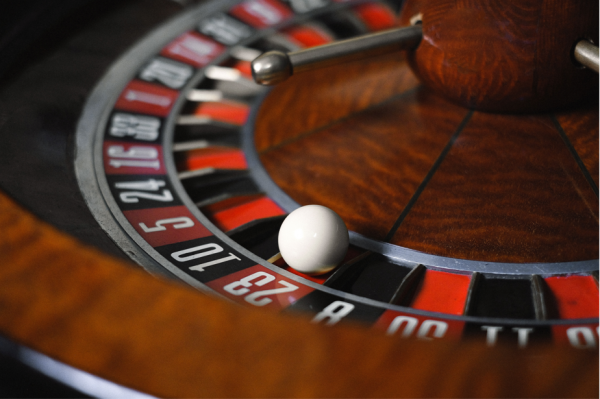We teach our children not to be greedy, but, to some extent, greed is good – especially when we are playing poker! Am I being greedy if I play to win as much money as possible? Is that wrong? So, I decided to do some research…
Greed is commonly regarded as a selfish and excessive desire for more of something (such as money) than is needed. (You can be greedy for just about anything – food, drink, fame.) Naturally, greed is most often associated with money. Hunger for money is one of the factors that entices us to gamble in the first place, whether it’s on lottery tickets or scratch cards games, wagering on sports games or casino games, or taking a seat at the poker tables.
If you’ve ever seen the 1987 movie Wall Street, starring Michael Douglas as Gordon Gecko, you’ll be familiar with the famous line…
That’s a bit of a generic statement, of course. Obviously, we wouldn’t want greed to push us too far. Let’s go back to the scratch cards or lottery tickets example from earlier. Buying a few and taking a chance to hopefully win some money is perfectly normal — and even quite fun! — but you shouldn’t ever invest your life savings in such pursuits, hoping you might strike lightning and win a vast fortune.
According to PsychologyToday.com, one theory of greed is that “it is programmed into our genes because, in the course of evolution, it has tended to promote survival.” We are born with it. In the course of evolution, greed has often motivated change for the betterment of the individual and society as a whole. Interesting! Without greed, a person, community, or society may lack the motivation to build, or change or achieve, and may also be rendered more vulnerable to the greed of others.
And, without greed, poker would not be the great game it is. It provides the motivation to win – and to win as much as possible. There are skills we can learn to achieve that goal, such as slow-play and check-raise. We slow-play our hand when we hold a monster (maybe the nuts) after the flop, and want to keep as many opponents (the “enemy”) in the hand as possible to contribute to the pot we expect to win at the showdown. The bigger bets on the turn and river can contribute to that goal. The more chips piling up in the pot, the more likely an opponent will risk even more of his/her stack. He/she can only guess at the strength of your hand, and that big pot is so attractive.
Undoubtedly, if you play much poker, you have experienced having been check-raised on occasion. Your opponent, in an early position, checks their hand; then you bet out, assuming your hand is the best at that point. Surprise! They raise your bet. Hopefully, by now you too have learned to take advantage of that tactic and use it often; it works both ways.
When holding a monster hand, other deceptive strategies and tactics closely allied to satisfying one’s greed are often employed by savvy players. These include trapping, setting the bait, and sandbagging.
Sandbagging is more commonly known these days as “slow playing”. When you slow play at the poker table, you know that you have an excellent hand – possibly even the nuts. Yet, you wish to entice other players at the table to commit their stacks to the middle, so rather than lead out, you might wish to opt for a check-raise, thus getting opponents to at least put some money in the pot (and only then, perhaps, fold to your raise) rather than fold to a bet you would have made. Note that “slow playing” is very different from “slow rolling”…
In trapping an opponent to stay in the hand, you would under-bet in no-limit and high-limit games, or just call a previous bet (no raising). Setting the bait in poker is much like the fisherman who baits his hook as a lure to the poor fish. He encourages his opponents to make and call bets.
At the end of the day, what all of our actions at the poker table have in common is that they are motivated by greed. You might not have good enough cards to take down a pot, but greed pushes you to occasionally try a bluff, in the hopes of forcing your opponents to fold.
For instance, semi-bluffing – a form of bluffing – is a strategy often used to force out your opponents when you hold a drawing hand and are hoping to catch a monster – with favorable pot odds. There are two ways to win that pot: Either your opponents fold to your opening bet or raise, or you can make your hand on the next card. What’s more, if you miss on the river, you can still try to win on a bluff. The Esther Bluff tactic helps to convince your opponents that you hold a monster hand. (See special offer, below, for my book: The Art of Bluffing.)
So, like it or not, greed is a big factor in playing poker, encouraging various strategies and tactics in our quest to win more and more. If you experience “light bouts of greed” and just have occasional flashes where you dream of an instant payday, you can stick to the occasional scratch card purchase. If your greed is more layered, however, and you feel as though you could employ skill, cunning, tested strategies and techniques, and boldness to your benefit in order to consistently win money from other competitors, poker is most certainly the right game for you.








Comments